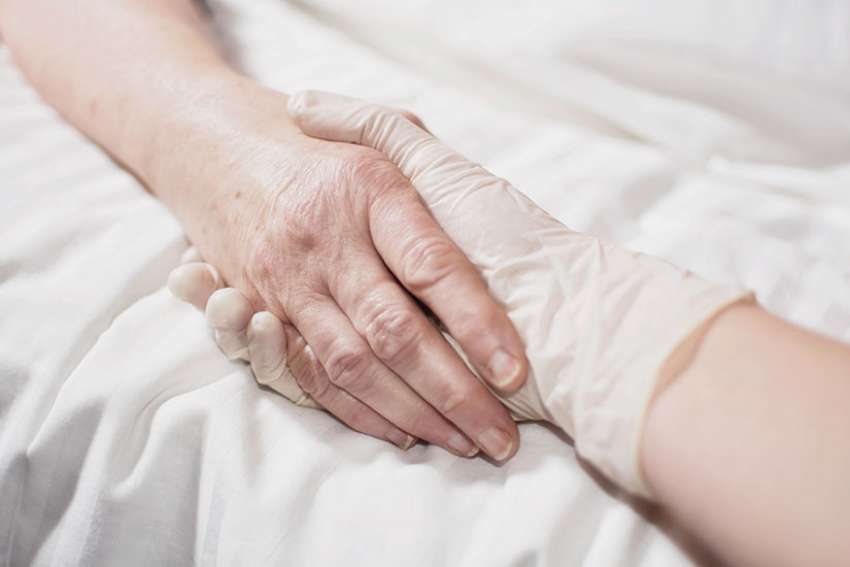It ran in The Ottawa Citizen in December at a time when most people were thinking about the glad tidings of Christmas.
Health Canada, the story said, had struck a committee of experts to study expanding the current euthanasia law to mature minors and those with mental illness. The term “mature minors” was not defined, the story said. The committee will also look at adding an advance consent clause — such as to specify desire to be killed in a living will. It must report by December 2018.
It was a confirmation the slippery slope argument against legalized euthanasia was not just a paranoid fantasy to scare supporters of state-sanctioned death but a living, breathing menace.
The law passed last June was supposed to be restrictive and safe. It said only adults whose suffering was unbearable and whose death was reasonably foreseeable could legally die at the hands of their physicians. From the time of legalization to mid-December, the last statistics made available, 744 Canadians had died under the new death regime. The same act that was considered murder just over a year ago is now an acceptable part of medical practice.
We know nothing about those 744. The specifics are private. Those physicians and ethicists who oppose euthanasia will tell you the current law allows for judgment calls since “reasonably foreseeable” is not an exact science. End-of-life predictions have become more difficult — which should be something to celebrate. We all know those who have had cancer, a diagnosis that was a death sentence a generation ago, living for many good years and in some cases beating the disease completely. Euthanasia has the potential to destroy those years beyond which a reasonable diagnosis can predict.
This is one of the perverse things about euthanasia. For years medical science has made huge strides in fighting deadly diseases and finding ways to quell pain. Yet, just as progress was soaring a collective decision was made to throw death into the mix.
As for the Health Canada review, no one should be surprised. Those of us who have been battling euthanasia have long known how Belgium and The Netherlands degenerated into death societies over the past two decades. In those countries almost any reason is good enough to die. It is embedded in those countries’ cultures and it will not be long before the vast majority of citizens of those countries will be unable to remember a time when life was precious and worth saving.
The evidence for the slippery slope was also made apparent during the run-up to legalization.
The Supreme Court of Canada decision in February 2015 to scrap the Criminal Code prohibitions against euthanasia and a subsequent parliamentary committee charged with creating new legislation demanded by the court, recommended those with chronic pain, psychiatric issues and those who were dying be given access to death. There was also a call to study euthanasia for teens.
The Liberal government of Justin Trudeau seemed to choose a more reasonable law, hailed by some as a Solomon-like compromise. But now the ghosts of those earlier extreme proposals loom.
Euthanasia is a corrupter of society. It destroys law, medicine and care. It destroys the sense of nobility in which men and women strive to save and restore lives. We still sorely lack palliative care for those of us who do not want to kill ourselves but live our days as if each was a gift from God. At last count 70 per cent of Canadians who need palliative care cannot get it.
How we got here is now less important than what we will do now. There is no political party who will save us. At least on this issue, politics is dead.
Having said that, we should lobby provincial MPPs to make sure doctors whose conscience tells them euthanasia is murder are not penalized for their refusal to cooperate in any way with the killing of their patients. The Archdiocese of Toronto along with many allies is gallantly fighting for conscience protection.
Beyond that there will still be doctors who are willing to kill. And God only knows what the next generation of medical school students will be taught.
We must find ways of taking care of ourselves. It will have to happen at the parish level, sometimes the only true communities left in our ultra-mobile world. And it will have to mean that those Catholics who present themselves for the Eucharist, who harbour support for killing, better wake up and remember who they are. You may fool some but not God.
Get ready. Learn as much as you can. A new dark age is already happening. Do not let anyone tell you otherwise.
(Lewis is a Toronto writer and regular contributor to The Catholic Register.)


